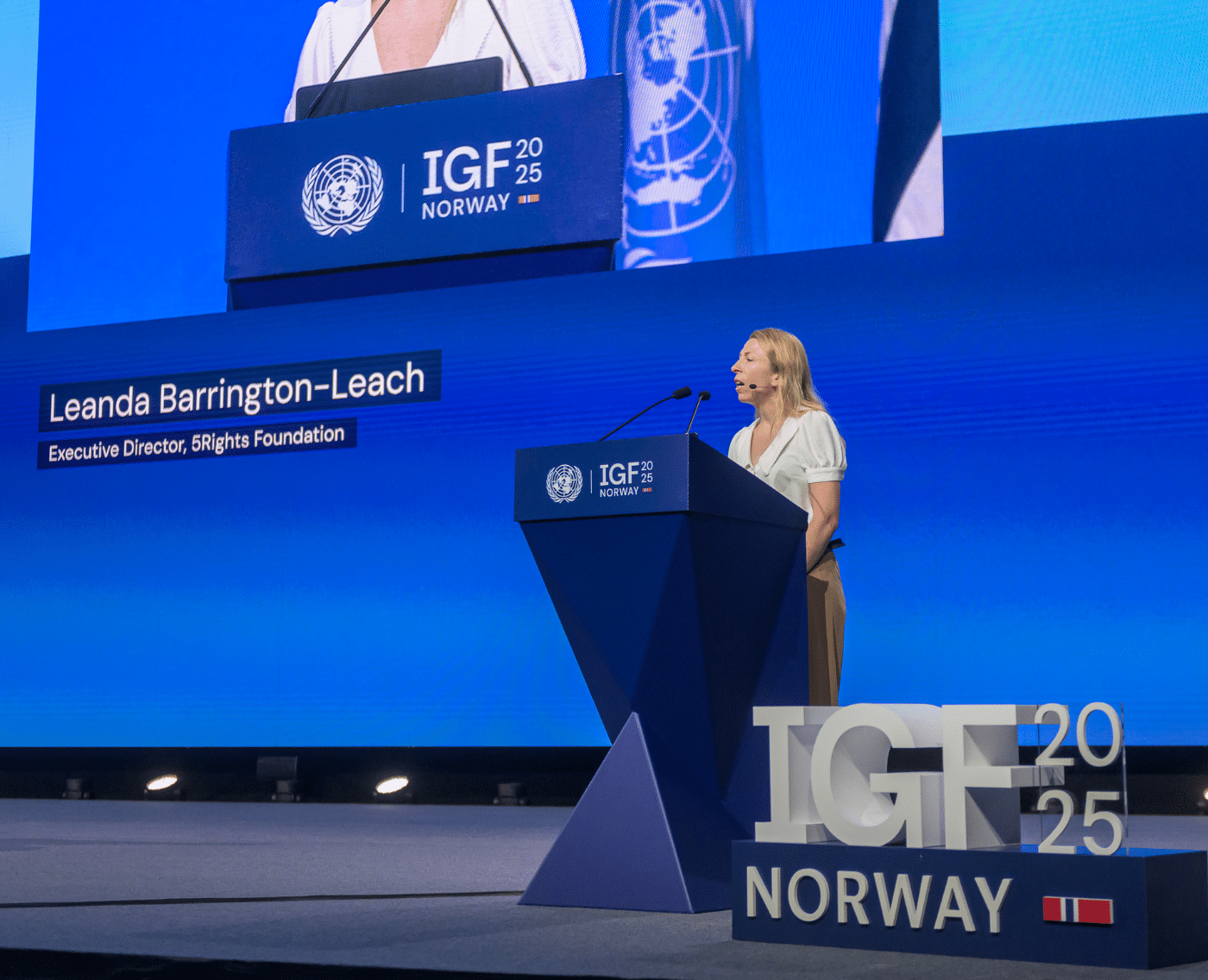5Rights urges world leaders and tech firms to stand up for children at UN Internet Governance Forum
Opening the UN Internet Governance Forum’s ministerial panel on children’s online safety, 5Rights Executive Director Leanda Barrington-Leach challenged all stakeholders to face up to the reality of children’s current experience, and take bold action to reshape digital design.

At the 20th United Nations Internet Governance Forum (IGF) in Norway, 5Rights was the only organisation invited to open a high-level ministerial panel on securing children’s safety in the age of algorithms – marking a significant recognition of 5Rights as a global leader in digital governance.
Delivering the panel’s opening expert presentation, 5Rights Executive Director Leanda Barrington-Leach set the tone for the session and emphasised that despite AI heightening risks to children in the digital world, technology itself is not the problem. Rather, pervasive violations of children’s rights reflect tech companies’ prioritisation of commercial imperatives above children’s best interests.
“Children’s digital experience is not a result of the technology itself, but it does reflect the priorities of those who own, build, and deploy it, including AI” she told the packed room of ministers, platform executives and policymakers. “To change children’s experience, those priorities must change.”
This perspective was echoed by Norway’s Minister of Digitalisation and Public Governance, Karianne Tung:
“We need to change the logic behind platforms that see children as commodities. We need to get away from addictive designs and ensure platforms respect the UN Convention on the Rights of the Child.”
While tech companies have demonstrated their ability to deliver age-appropriate digital products and services in compliance with leading regulation across the world, they consistently refuse to extend these protections to jurisdictions where they are not obliged. As outlined by Sierra Leone’s Minister of Communications, Technology and Innovation – Salima Bah – this unequal protection is a facet of the digital divide:
“Global South countries need meaningful inclusion in coordination efforts to ensure solutions are inclusive and equitable.”
Echoing these calls for child rights-respecting design and global standards, the Lillestrøm Messages – the IGF’s outcome document – underscored the need for platforms to adopt a child rights-based approach that upholds children’s dignity, privacy, and best interests. The document further highlights the lack of strong, standardised and globally applied mechanisms as a critical gap in protecting children in the digital environment.
Children have the right to protection and agency in the digital world. Governments and platforms now have the responsibility to respond.
